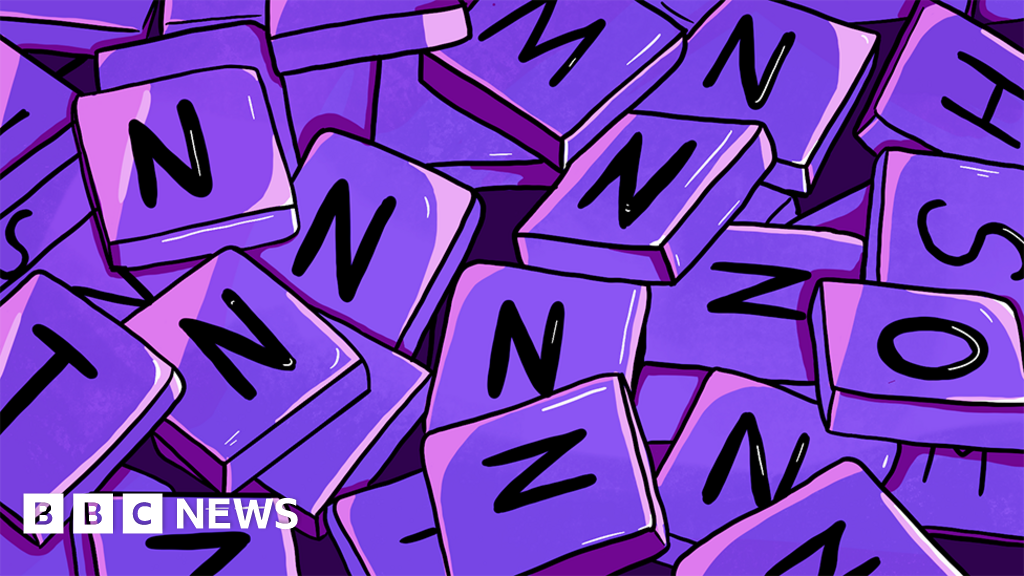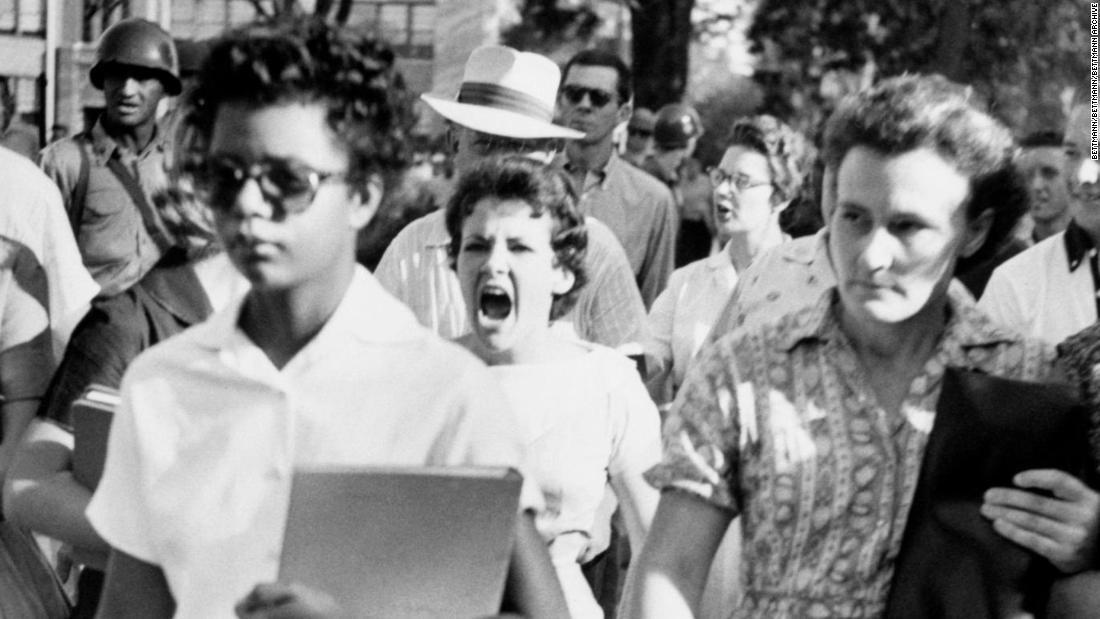The N-Word: Who Can Say It & Why?
Can the use of a single word, steeped in centuries of pain and oppression, truly be a matter of debate? The answer, surprisingly, is far from simple, and navigating the complexities surrounding the "n-word" requires a deep dive into history, culture, and the ever-evolving landscape of race relations.
The question of who is "allowed" to use the word, and under what circumstances, has ignited countless arguments, both online and off. It's a question that touches upon the core of identity, belonging, and the legacy of slavery and systemic racism in America. The word itself, born from a history of dehumanization, remains a potent symbol of hate for many, while others, particularly within the Black community, have sought to reclaim it, transforming it into a term of endearment or solidarity.
The issue is further complicated by the existence of diverse communities, like the Mexican community. They are often caught in the crossfire of this discourse. While some might argue that their non-white status grants them a certain degree of leniency, the reality is far more nuanced. Its a complex web of historical context, cultural understanding, and individual experiences that shapes how different groups approach and perceive the word.
| Aspect | Details |
|---|---|
| Origin and History | The word's origins lie in the transatlantic slave trade, where it was used as a tool of dehumanization against enslaved Africans. Its roots are firmly planted in the context of white supremacy and racial oppression. |
| Cultural Significance | The word carries immense weight and emotional baggage for Black people, representing a history of violence, discrimination, and systemic injustice. For many, it is a painful reminder of the daily indignities and challenges they face. |
| Reclamation Efforts | Some within the Black community have sought to reclaim the word, using it in a variety of ways to assert their agency, build solidarity, and challenge its hateful connotations. This reclamation is a complex process that is still ongoing. |
| The Role of Context | Context is a crucial factor. The intent, tone, and relationship between the speaker and the listener can heavily influence how the word is received. However, this doesn't negate the word's inherent power or the pain it can cause. |
| The "N-Word" and Other Ethnic Groups | The use of the word by individuals outside the Black community is a contentious issue. Many believe that it should be exclusive to Black people, given its historical context and the trauma it represents. |
| Mexican and Latinx Perspectives | Mexican and Latinx communities often find themselves in a grey area. Their relationship with the word is multifaceted, shaped by their own experiences with race and identity in the United States. |
| Internal Debates | There are differing views on this issue among Mexican and Latinx people themselves. Some feel they are granted a pass due to their status as people of color, while others believe they should abstain from using the word out of respect for its origins. |
| Generational Differences | The older generation of Mexican Americans may not share the same perspective as the younger generation. |
| The Impact on Identity | The debate surrounding the use of the "n-word" can affect cultural identity. |
| Moving Forward | Empathy, education, and ongoing dialogue are necessary for navigating this complicated issue. Recognizing the historical context and the perspectives of different communities is key. |
| Legal and Social Consequences | Using the word can lead to a variety of legal and social consequences, including social media backlash, job loss, and even legal action in certain cases. |
| Scholarly Research | Scholarly research offers insights into the historical and sociological aspects of the "n-word" within the Black community. |
| Media Representation | The way the "n-word" is used in media (music, movies, etc.) can be a source of controversy, shaping public opinion and causing internal debates within communities. |
| Artistic Expression | The words appearance in songs serves as part of a reclamation of the word by Black artists and isnt intended to be used maliciously, many young people, regardless of skin color. |
| Conclusion | Understanding the nuances of language and context in relation to historical and cultural factors can offer insights into the ongoing debate about the use of the n-word." |
For more information on the origins and cultural significance of this word, consult reliable sources, such as Britannica.com, which provides a comprehensive overview of the term's history and usage.
The argument that "it's not more correct for other ethnic minorities to use the n-word than white people" reflects a widely held sentiment. The historical power dynamics at play mean that usage by those who didn't experience the direct brutality of slavery and the subsequent oppression often feels different.
The response "It's automatically racist for anyone to tell someone they cant do or say something based on the color of their skin" is a valid point of view and a complex conversation starter. It's true that people should not be dictated to based on their skin color. This principle is a cornerstone of the fight against racism.
This is a complex debate where theres no one explanation on how we got to this point. Like everything related to black and brown identity, its a complex web. The reclamation of the word in songs serves as part of a reclaiming of the word by black artists and isnt intended to be used maliciously. In the world of music and artistic expression, the "n-word" finds its voice, especially in genres such as Reggaeton and Latin Trap. These musical forms often offer their own reasons and context for the use of the word.
The idea that the use of the word is only about how you use it and not inherently racist is a controversial one. While intent and context are important, the historical context of the word cannot be dismissed. Its a word that carries with it the legacy of slavery, Jim Crow, and the ongoing struggle for racial equality.
As the word appears in many contexts, including popular culture. African Americans regularly call each other the "n-word." For many, it is a term of endearment and solidarity within the Black community. However, it is crucial to acknowledge that even within that community, not everyone is comfortable with its use. There are varying perspectives, with some wanting to reclaim the word, while others are uncomfortable with it.
As a leading scholar, Randall L. Kennedy, considers the most touchy and rarely discussed issue of when one is permitted to use the word "nigger". The word is a key word in the lexicon of race relations and thus an important term in American politics. Cultural literacy demands knowledge of it.
The concept of a "pass" is often brought up. For instance, the idea that Mexicans get a pass due to their not being white is one. When considering the history of racial classification in the United States, Mexicans are often viewed as "people of color," which does provide some context in which the word is perceived. Older Mexican Americans, however, may not feel comfortable.
The use of the word varies from place to place. In Houston and New York, the usage of the word has been seen for years. This demonstrates the word's complicated role within various communities.
The origins of the word go back to slavery. White people cannot use the word because its origin in slavery hasn't been lost. The question of whether or not others can use it remains a complex one, and the answer depends on multiple factors.
As people's identities and backgrounds evolve, it is important to be mindful of the word's impact on each group. Many understand the intent of the word, while others do not.
The challenge of these conversations is that everyone is not like you and won't be ok with you saying it. Many people want to reclaim the word, but that's not the case for everyone.
The discussion on the "n-word" is very complicated. The word is used so much that everyone thinks they can use it whenever and it's fine. It is a painful reminder of a time that must never be forgotten.


